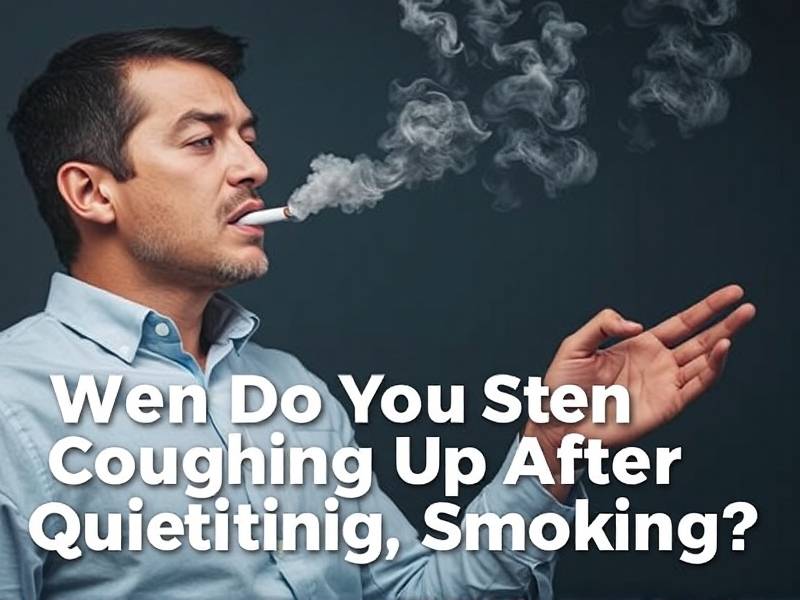When Do You Start Coughing Up After Quitting Smoking?
Understanding the Timeline of Coughing After Quitting Smoking
Introduction: Quitting smoking is a significant step towards a healthier life, but it often comes with unexpected challenges. One such challenge is the onset of coughing, which can be both unsettling and discouraging for many smokers. This article aims to shed light on when you might start coughing after quitting smoking, the reasons behind it, and how to manage it effectively.
When Do You Start Coughing After Quitting Smoking?

-
Immediate Onset: In some cases, individuals may start coughing almost immediately after quitting smoking. This is often due to the body's immediate response to the absence of harmful chemicals found in tobacco products.
-
Within a Week: For many people, coughing begins within a week of quitting smoking. This timeframe is primarily attributed to the body's attempt to rid itself of tar and mucus accumulated in the respiratory system over time.
-
Within a Month: It's not uncommon for individuals to experience persistent coughing for about a month following their quit date. This duration can be influenced by factors such as the duration of their smoking habit and the level of tar buildup in their lungs.
-
Beyond a Month: In certain instances, coughing may persist beyond a month after quitting smoking. This can be attributed to various factors, including underlying respiratory conditions or chronic bronchitis.
The Reasons Behind Coughing After Quitting Smoking
-
Removal of Tar and Mucus: One primary reason for coughing after quitting smoking is the body's natural process of removing tar and mucus from the lungs. The absence of nicotine triggers this process, leading to increased production of mucus and subsequent coughing.
-
Increased Sensitivity: Quitting smoking can make your respiratory system more sensitive to irritants such as dust or allergens, leading to an increased likelihood of experiencing coughs.
-
Underlying Respiratory Conditions: In some cases, individuals may develop or exacerbate existing respiratory conditions like asthma or chronic bronchitis after quitting smoking, resulting in persistent coughs.
Managing Cough After Quitting Smoking
-
Stay Hydrated: Drinking plenty of fluids can help thin mucus and make it easier to expel from your lungs.
-
Use Humidifiers: Humidifiers add moisture to the air, which can help soothe your throat and reduce coughing.
-
Avoid Irritants: Minimize exposure to dust, allergens, and other irritants that may trigger your cough.
-
Seek Professional Advice: If your cough persists beyond a month or if you experience other concerning symptoms like shortness of breath or chest pain, consult with a healthcare professional for proper evaluation and treatment.
Conclusion:
Coughing after quitting smoking is a common occurrence that usually resolves within a few weeks or months. Understanding its causes and management strategies can help you navigate this phase more comfortably on your journey towards a smoke-free life.

